Ndumiso Ngcobo, writer

Ndumiso Ngcobo is the kind of writer that makes other writers cry. That’s because he’s one of those guys who was born with it. He doesn’t have to slog away like the rest of the hacks. Ngcobo just writes and what he produces is some seriously funny, achingly smart, stuff.
It was back when he was a lowly food scientist at the food processing company, Unilever, that he started writing emails. You know those occasionally hysterical ones amid the stack of annoying riffs that are forwarded around the planet? A few of Ngcobo’s emails made the Gauteng rounds and landed on the desk of a local DJ, who read Ngcobo’s stuff on air. That’s all the encouragement he needed.
He put together all those emails — along with a stack of writing that he had done over the years — and sent his compilation to a few publishers. Two Dogs put out his first book, Some of My Best Friends Are White in August of 2007. By then Ngcobo had already started blogging. His Resident Zulu Spear-chugger blog became a favourite on the Thought Leader website, and got Ngcobo a huge following.
“It’s a play on the US racial slur for African people ‘spear-chucker’ and my notoriety as a beer chugger of note — kind of, ‘I’m so mean I chug spears’,” he says.
His second book, Is It Coz I’m Black?, was released in April.
Ngcobo quit his food scientist gig a while back, taking up writing full-time. He is now a screenwriter for several shows, including SABC2’s Drawing the Line and is head writer for the channel’s Late Night with Kgomotso.
His favourite part about the new job? “The writing,” he says. “It sounds ridiculous but seriously, it is the moments spent at 3am with fingers on the keyboard and a cold, fermented beverage lurking close by …and then the release.” — Tanya Pampalone
Lunch spot: Rapsody, Centurion
Xolani Gwala, broadcaster
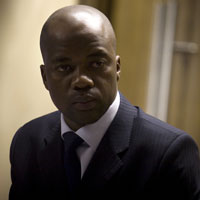
Just listening to Xolani Gwala makes smart girls swoon. The former supermarket shelf packer has been talking up everything from politics to education, sports and the arts since he started his career as a newsreader on Ukhozi FM — the biggest radio station in the country, based in Durban.
Since then he’s worked at every broadcast outlet from Talk Radio 702 to SABC3, where he hosted the flagship English current affairs programme, News Hour.
Gwala recently returned from the Middle East where he was a news anchor for Ramfm — Primedia founder Issy Kirsch’s brainchild — until it shut down last year. Gwala co-hosts Safm’s PM Live and presents and produces SABC1’s evening discussion programme Asikhulume/Let’s Talk. — Tanya Pampalone
Lunch spot: Sakhumzi’s, Soweto, Johannesburg
Phillip de Wet, freelance writer

Phillip De Wet is a journalist’s journalist. He not only knows how to make the driest financial and technical subjects interesting but readable, with a distinct voice that pops right off the page. The former deputy editor of Maverick magazine and co-editor of Empire — both of which he launched alongside media mastermind Branko Brkic — reigned over the business and media landscape with a distinctly Maverick voice until they closed in late 2008. De Wet started out early, working for a community newspaper in Pretoria after studying journalism at Tshwane University. Later, he joined IT Web as a reporter and by the end of that year, at 22, was the news editor — later joining the ill-fated This Day. De Wet writes on business and technology for the Sunday Times, Mail & Guardian and Stuff magazine. Now the 30-year-old is on the brink of transforming the South African media universe once again with a soon-to-be launched revolutionary online daily. — Tanya Pampalone
Lunch spot: Barry’s Grill, Rosebank, Johannesburg
Nkepile Mabuse; correspondent; CNN
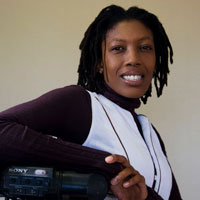
Nkepile Mabuse doesn’t like to spend her free time with other journalists. When you are working journalist’s hours as the local CNN correspondent, downtime is better spent thinking about things that aren’t all news all the time.
But Mabuse does love her work.
“It’s the greatest job in the world,” she says.
Based in Johannesburg, Mabuse covers stories around the continent. Before joining CNN, she worked for e.tv as executive producer for Third Degree. Mabuse has won the CNN Multichoice African Journalist of the Year award and received a merit award in the Vodacom Journalist of the Year award for bright young stars. — Eamon Allan
Lunch spot: Bottega, Parkhurst, Johannesburg
Siphiwe Mpye; associate editor; GQ
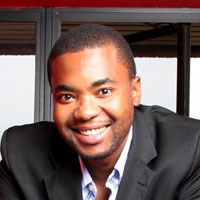
When Siphiwe Mpye wondered what he would do with his life, it was a toss up between arts and culture and media. Fortunately, he found a way of combining them. Mpye became a writer, editor and a media communications consultant.
Since he started out, Mpye has written for the Sunday Times, the Sunday Independent and The Star. He has worked as head of communications for Yfm and as a co-editor and columnist for Y Magazine. Mpye is also a partner in Baobab TV Productions and is founder and director of The Off Ramp, a talent management company. He has been associate editor of GQ since 2008. — Eamon Allan
Lunch spot: Cilantro, Parkhurst, Johannesburg
Sotiris Moldovanos; station manager; UJFM

The consensus is that the playlists on UJFM kick ass. But who’s responsible for all this great music blasting out of a student radio station?
Sotiris “Sot” Moldovanos is the music manager and interim station manager of UJFM. He compiles weekly charts and plays music he picks up from demos of emerging local artists. Maldovanos has a solid understanding of music and he has the ability to recognise potential, using business and managerial skills to keep the place running.
He did a BTech in fine art at Pretoria Technikon — now known as Tshwane University of Technology — and he’s also exhibited in numerous group exhibitions in South Africa and Europe as well as two solo exhibitions in 2001 and 2007. — Eamon Allan
Lunch spot: His mom’s house
Masechaba Moshoeshoe, presenter
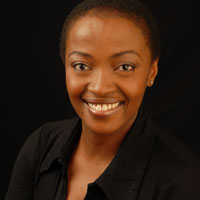
Identifiable merely by her crisp, loud voice, Masechaba Gloria Moshoeshoe has become one of the country’s household names when it comes to talk shows.
Moshoeshoe started out as a sports presenter on former TV1’s (now SABC1) Junior TopSport. But she’s transformed into an influential host on both radio and TV addressing everything from education and poverty to health and housing.
Just 34, Moshoeshoe is best known for hosting The Big Question on SABC2 and her radio show, Kaya Talk, a current affairs and lifestyle talk show on Kaya FM.
If she wasn’t in media, Moshoeshoe says she probably would be playing the role of a barefoot housewife in the kitchen. — Mmanaledi Mataboge
Lunch spot: Darkies Café, Johannesburg
Zintle Sithole, Lukhona Lufuta, mobile bloggers 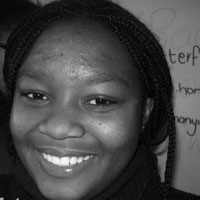
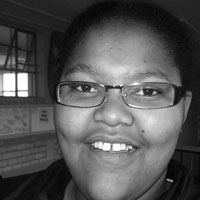
Zintle Sithole and Lukhona Lufuta are mobile reporters for a grassroots project called Afrigadget.
Founded by Erik Hersman, it’s a website showcasing African inventions, developments, events and stories by those who live on the continent.
While in matric last year, they were selected to be part of a team of Afrigadget bloggers, who report from the ground on “stories of African ingenuity” using digital and mobile technology. The two love technology and their country, and believe that Afrigadget is the ideal platform to showcase their communities.
The site was listed as one of Time magazine’s 50 best websites in 2008. Zintle and Lukhona are now studying at the University of the Western Cape, but are still passionate about mobile reporting. They always keep their phones on in case they spot something weird or wonderful that’s worth sharing with the rest of the world. — Qudsiya Karrim
Lunch spot: Spier, Stellenbosch
Mondli Makhanya; editor; Sunday Times
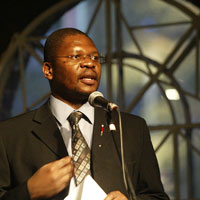
Mondli Makhanya, who has been the editor of Sunday Times since 2004, has had his share of controversy over the past few years. There was his looming arrest in 2007 over the use of former health minister Manto Tshabalala-Msimang’s medical file for a Sunday Times article that alleged that she was an alcoholic and kleptomaniac. Then the firing of columnist David Bullard and a series of front-page articles were later called into question — one resulted in an apology ordered by the Press Ombudsman.
The former editor of the Mail & Guardian started out as a journalist for the Weekly Mail in 1990 as a business writer and has since been deputy news editor of The Star and an associate editor of Sunday World.
Although the newspaperman’s colleagues around the world are facing a shrinking industry, Makhanya remains upbeat. “Technological advances have changed the nature of journalism,” he says. “We just have to adjust to the nature of the way people are consuming news. In South Africa we are not doing badly in terms of representing advances, but we are behind in terms of how many South Africans are connected.” — Eamon Allan
Lunch spot: The Grillhouse, Rosebank, Johannesburg